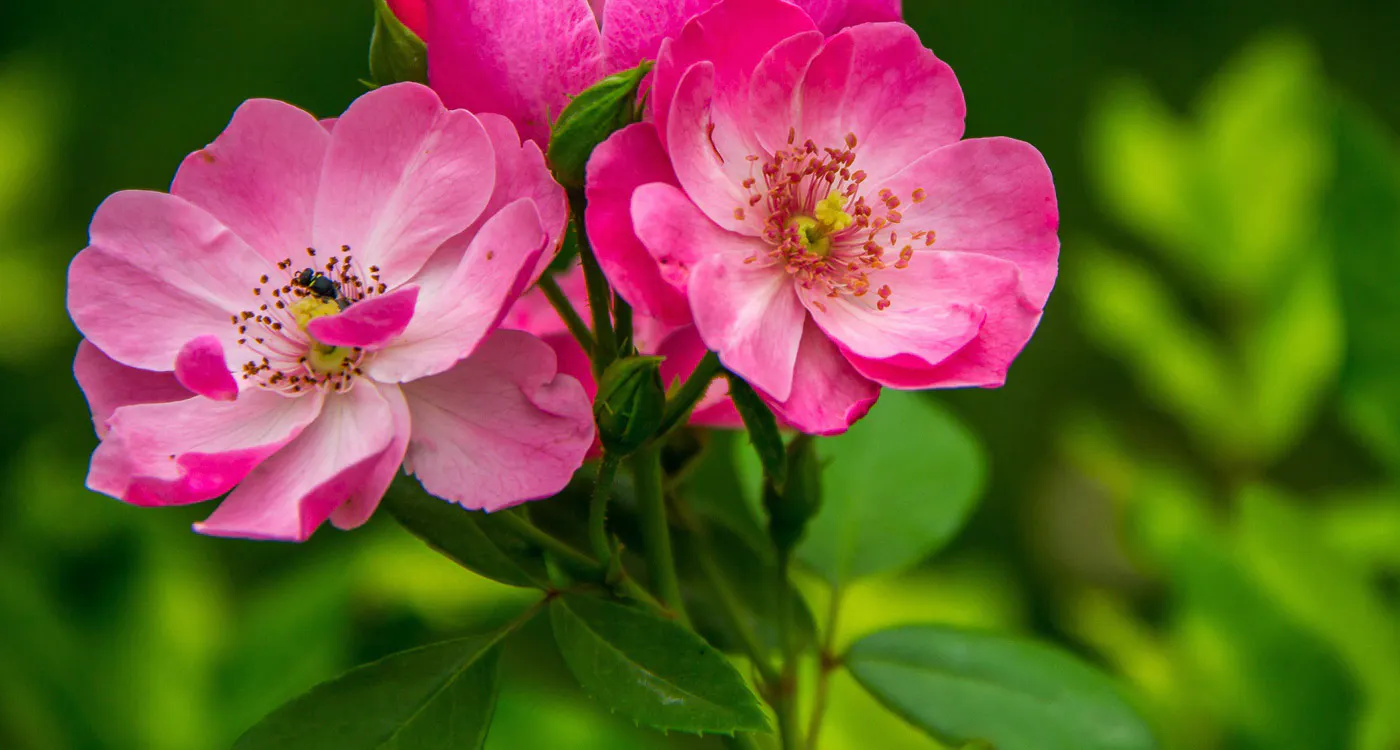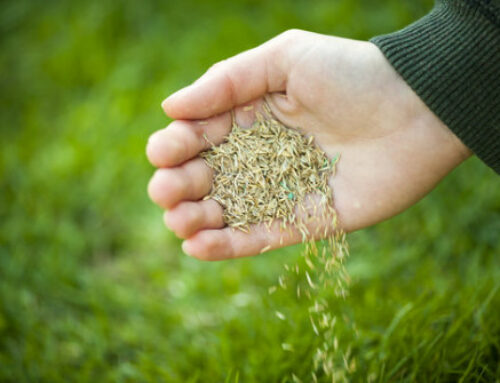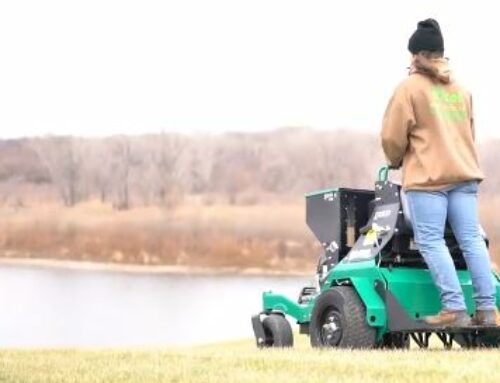Summer Rose Care in the Iowa Heat
Summer rose care is essential as these lush, fragrant, and gorgeous flowers have the time of their life during the summer months, charming you with their bright bold colors, their hypnotizing scents, and their surreal beauty. But the scorching summer months of Clive may also negatively impact your roses, together with pests and specific diseases, all leading to incommensurable damages. Today, our lawn care experts, together with their landscaping colleagues came up with a short guideline for summer rose care for you to take into consideration. Preserve your roses, keep them healthy and safe, and enjoy a fragrant, colored, and dreamy summer on your property!

Give Your Roses Plenty of Water
You should hydrate your lawn, garden, and overall landscape thoroughly during the summer months, following, of course, the water regulations in your area if there are any. However, roses need special care when it comes to irrigation. You should give them at least 2.5 gallons of water weekly, very early in the morning. Horticulture specialists and rose experts say that the best way to keep your roses healthy and thriving is to install a slow-release drip irrigation system, as it hydrates the roses thoroughly, without wasting too much water.
Keep Your Roses Free From Pests
There are plenty of pests lurking around your property and you should keep an eye on them and repel them efficiently. Aphids are usually the biggest enemies of roses during summer. These tiny pests feed on your plants and they have a sweet tooth for roses. You will find these worm-like pests under the roses’ leaves and you can trace them by the black sticky substance they leave behind. This sooty fungus causes many problems for plants, as it blocks sunlight. If you have an aphid case on your hands, you should ask your lawn care specialists for their help with aphids. There are plenty of organic and treatment solutions to keep these destructive pests away from your roses and you should be prepared to employ them.
Feed Your Roses with the Right Nutrients
Needless to say, your roses should have been planted in a sunny area, away from mosquitoes, snails, or other shadow-loving bugs and pests, and benefit from a proper soil pH and balanced nutrients. However, feeding your roses during summer is mandatory, as heat and other environmental conditions may lead to disease development and poor nutrition side effects. While proper watering is the best solution to have your roses nourished in a healthy manner, you can also use organic fertilizers to keep them thriving. We have talked about the benefits of Epsom Salt before as a natural fertilizer for roses and vegetables, but you can ask your local lawn care specialists for more advice on the matter.
FAQ
Q: When is the best time to transplant roses?
A: You can transplant roses in the spring, fall or summer if necessary. Just make sure while you transplant your rose you are getting as much of the root ball as you can and water as the weather requires. Personally, we like to transplant late fall one the plant has gone into dormancy or early spring before the buds break if the possibility for frost is gone.
Q: I have climbing roses on a trellis. When should I trim them?
A: Early in the spring is the best time as you can identify the dead material to remove. Remember to deadhead the sideshoots for reblooming varieties to promote the next flowering event.
Q: What are the best roses for beginners?
A: For beginners we always recommend “knockout” roses!
Having roses thriving on your property is a dream come true, but these majestic and gorgeous flowers also need the proper rose care. Ask your local lawn care specialists for advice and let them help you with the best protection and maintenance activities for your roses all summer long.
Share This Story, Choose Your Platform!
Recent Posts
Is Winter the Best Time for Pruning?
Winter pruning is indeed the best time for Tree pruning, if pruning is [...]
Ultimate Guide to Lawn Aeration and Overseeding Mastery
A healthy, lush lawn doesn’t just happen—it takes care and the right approach. [...]
The Superpower of Lawn Aeration: Unlocking the secret to a vibrant Lawn
When you envision a stunning, vibrant lawn, what springs to mind? Probably a lawn [...]
Yellow Nutsedge “The Lime Green Grass invader”
It is that time of year, Yellow Nutsedge is starting to show up within our [...]
The Art of Pruning Hydrangea’s
Pruning Hydrangea's If you're growing hydrangeas at your West Des Moines home, let's keep [...]
Achieving that Perfect Urbandale Lawn in 5 Steps
Maintaining a perfect Urbandale lawn is about more than just regular watering and fertilization. [...]










